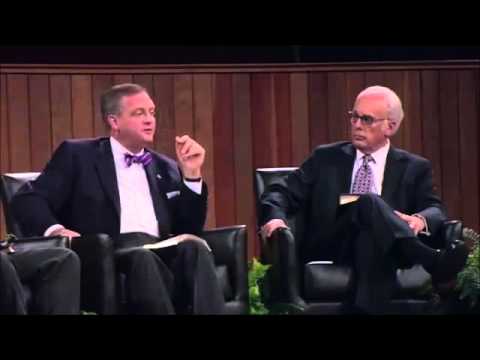The recent U.S. Presidential election is casting a long shadow over many people of faith. My friend, there is no question that we as a nation are more divided than ever. At the crux of this division is evangelicalism, specifically the term evangelical.
According to the Pew Research, 81 percent of participating evangelicals voted for Donald Trump. Now, regardless of whomever you voted for, media channels, pastors, believers, and nonbelievers are all calling into question the role of evangelicals in endorsing the questionable character of President-elect Trump.
I recently came across this video of Al Mohler, John MacArthur, and others discussing the future of evangelicalism and whether we may be facing the end of the term “evangelical”:
[youtube id=”TpogWiu8snQ”]
This is not a direct critique of Donald Trump—as our future President, we are called to pray for him and hold him to fair and equitable practices as our nation’s leader. The same would be true whether the president-elect was Hillary Clinton, Gary Johnson, or any other candidate.
What is clear is that we as evangelicals are facing a new reality. It can no longer be assumed that media, the liberals, and even moderates are equating evangelicalism with conservative principles as in the past.
How comfortable do pastors feel about the term ‘evangelical’?
Christianity Today shared an article detailing a recent survey of 440 pastors on the term ‘evangelical’ couched in four distinct questions:
- How comfortable do you feel describing yourself as “evangelical” to other Christians?
- How comfortable do you feel describing yourself as “evangelical” to non-Christians?
- Since Election Day, how has your comfort level changed describing yourself as “evangelical” to other Christians?
- Since Election Day, how has your comfort level changed describing yourself as “evangelical” to non-Christians?
The responses to the first two questions show a much stronger comfort level for pastors using the term ‘evangelical’ to describe themselves to other Christians. Approximately only half the pastors surveyed were comfortable at all with using the term in conversation with non-Christians.
The most telling question was Question 3: “Since Election Day, how has your comfort level changed describing yourself as “evangelical” to other Christians?” Between one-quarter to one-third of the surveyed pastors are less comfortable using the term ‘evangelical’ regardless of the context or audience.
What’s next for ‘evangelicals’?
Many evangelical leaders are considering other terms to replace ‘evangelical’. I don’t know how beneficial it may be to simply replace a word that seems to be losing its meaning.
What I believe to be true is that labels are often misleading. We use labels to provide comfort, peace of mind, and understanding for what may often be misunderstood or inaccurate. Whether we choose to use ‘evangelical’ or any other term, it doesn’t change who we are called to be. Remember, at the root of the term ‘evangelical’ is where we extract the meaning “messengers of good news”.
We as the Church are still called to pray for our leaders. We are called to engage our culture through a Christ-honoring lens. And, most importantly, we are called to share the Gospel with a world in desperate need of a Savior. That, my friend, is good news.







![Where is God when Discouragement Sets In? [Sermon]](https://joshweidmann.com/wp-content/uploads/2022/06/paola-chaaya-eAkjzXCU0p0-unsplash-180x135.jpg)

![How to Help Kids with Anxiety [video]](https://joshweidmann.com/wp-content/uploads/2020/07/mladen-borisov-RzbUUaP2JXY-unsplash-180x135.jpg)



